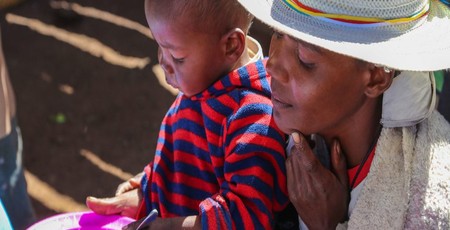Microsoft launches AI for Humanitarian Action programme
September 25, 2018 | 11:36
Companies: #microsoft #united-nations-general-assembly

Microsoft, in partnership with the United Nations General Assembly, has announced the launch of a new five-year, £30.4 million programme for social good: Artificial Intelligence (AI) for Humanitarian Action.
Taken in aggregate, the world doesn't quite seem to know how to react to advances in deep learning and machine intelligence. While breakthroughs like early detection of age-related macular degeneration are an undeniable good, many have concerns - and not always without reason - about a future in which mass unemployment has been triggered by automation of an increasing number of industries thanks to ever-smarter artificial intelligences. Microsoft, as one of the companies leading the development of said ever-smarter AIs, is looking to place itself firmly on the AI-is-good side of the fence with the launch of a five-year programme to develop AI for humanitarian causes.
'The initiative will harness the power of AI to focus on four priorities – helping the world recover from disasters, addressing the needs of children, protecting refugees and displaced people, and promoting respect for human rights,' explains Microsoft president Brad Smith of the programme. 'Our AI for Humanitarian Action programme is part of Microsoft's AI for Good suite – a growing $115 million, five-year commitment to work to unlock solutions to some of society's biggest challenges with artificial intelligence.'
Running in partnership with United Nations General Assembly and selected nongovernmental organisations (NGOs), the programme comes with £30.4 million in funding to be spread across projects throughout its five-year run. The programme is to be led by John Kahan, Microsoft's big-data lead, as the somewhat wordy chief data analytics officer for Microsoft's corporate, external, and legal affairs, reporting directly to Smith. 'For over 15 years, John has been one of the key leaders driving Microsoft’s big data strategy and work,' Smith says of the appointment. 'He has over 33 years of experience driving large-scale data and world-class data science teams. I could not be more excited about the future contributions this team has the opportunity to pursue.
'We are hopeful the world will see what a compelling force for good AI can be when it's used well in partnership with innovative NGOs,' Smith concludes. 'By ensuring technology fulfils its promise to address the broadest societal needs, we can empower everyone to achieve more.'
More information on the programme is available from Smith's announcement.

MSI MPG Velox 100R Chassis Review
October 14 2021 | 15:04








Want to comment? Please log in.